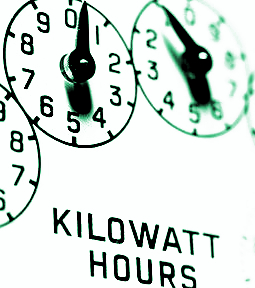Review reveals Vic power gouge
 Victorians pay an average of 21 per cent more than the cheapest price on offer for electricity and gas, according to a new review.
Victorians pay an average of 21 per cent more than the cheapest price on offer for electricity and gas, according to a new review.
The bipartisan review into the state's electricity and gas retail markets calls for power prices to be re-regulated after eight years of deregulation.
The recommendation is one of 11 measures to drive down prices, protect consumers and “put people first”, according to Energy Minister Lily D'Ambrosio.
The Andrews Government launched the bipartisan review into electricity and gas retail markets in late 2016, headed by former MPs Terry Mulder and John Thwaites.
The Government has pledged to take “decisive action” when it officially responds to the report later this year.
Ms D'Ambrosio said reregulation would bring a “no-frills” option for consumers.
“Consumers will have the choice … to actually have a basic service offer that is regulated by an independent party, a no-frills option that represents a reasonable price for buying electricity or gas in the market,” Ms D'Ambrosio said.
“The review that I commissioned late last year has made it absolutely clear that competition and deregulation is not working in the interest of families and businesses.”
Reports prepared for the review panel said the “unusually high” prices in Victoria were “evidence of market failure”.
Retailer charges — costs, marketing and profit — were shown to make up about 30 per cent of a household electricity bill; a larger proportion than come from actually producing or distributing electricity.
“Marketing is a major factor in energy price rises in Victoria. That's costing more than the cost to actually generate or supply electricity,” Ms D'Ambrosio said.
“It's a very complex market. The retail pricing practices have also made customer choices more complex and that's resulted in consumers often paying higher prices than they ought to.”
The report said marketing information should be easy for consumers to compare between companies, and that contract prices and variations should be clearer and fairer.
It calls for “brokerage and collective bargaining” on behalf of low income and vulnerable customers, and more monitoring by the Essential Services Commission (ESC).
One of the authors of the report, former Labor MP John Thwaites, said competition was so great that consumers were paying numerous extra costs.
“Competition does generally drive down costs. Now we've had 10 years of that experiment and it hasn't worked as we expected,” he said.
“It's an essential service. People can't exit the market.
“So there's no constraint on prices if they go up and up people have to keep paying those higher prices.”
Gerard Brody, from the Consumer Action Law centre, said the system is clearly dysfunctional.
“Competition needs to work to benefit customers and well-designed regulation can support effective competition,” Mr Brody told the ABC.
“We will work with Government so that a 'basic service offer' works for all Victorians.”








 Print
Print